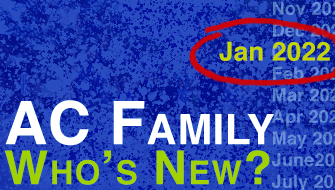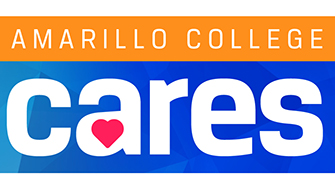Understanding Emotional Intelligence
October is Emotional Intelligence Awareness Month. With that in mind, we thought it would be helpful to make our AC family aware of:
- What emotional intelligence is
- The impact it can have on us and others
- Resources you have access to as AC staff and faculty.
Most people are familiar with IQ and what it measures. It includes the capacity to understand, learn, solve problems, think rationally, recall what you’ve learned, and be able to apply information learned to your everyday life.
What are some major differences between EQ and IQ? Most people’s IQ is highly consistent throughout a person’s adult years; emotional intelligence competencies can change and grow. Also, while IQ can sometimes be a predictor of one’s success, EQ appears to be better at predicting success and even performance in both teams and leaders. Although those with high IQ can be either high or low performers, those with relatively high EQ seem to consistently perform at a higher capacity.
So What is Emotional Intelligence?
Although it may seem like it, the concept of emotional intelligence is anything but new. The idea that there is more to intelligence than simply our cognitive abilities has been around since the 1940s and the development of emotional intelligence assessments began in the 1980s. Daniel Goleman began popularizing the concept in the 1990s and today, it’s hard to see a news feed or go very long without seeing a blog post or article mentioning EQ.
Even so, the concept of emotional intelligence has been difficult to define. There are many definitions of emotional intelligence, as well as a number of different assessments that include varying skills to assess one’s competencies.
According to MHS, Emotional Intelligence can be defined as “…a set of emotional and social skills that influence the way we perceive and express ourselves, develop and maintain social relationships, cope with challenges, and use emotional information in an effective and meaningful way.” Both the definition and assessment that MHS has produced are among the most comprehensive and best-recognized since the beginning stages of EQ development.
The EQ-i 2.0 Model
There are a number of emotional intelligence models with accompanying assessments that have been created over the last 30 years. Some are more helpful than others, and some are more limited in their scope. The most robust and inclusive of these is one developed by MHS, the EQ-i 2.0 model. Not only does it assess emotional intelligence skills, but it also provides key indicators of an individual’s well-being and potential performance.
This model incorporates one of the more robust assessments, which scores on five composites, each of which has three subscales, for a total of fifteen emotional intelligence competencies which you can see in the image to the left.
An individual is scored on each of the subscales, the five composite scores, and an overall EQ score. The overall score is not just an average of the subscales, but based on a proprietary formula developed by MHS.
- Individuals (and groups) can use the information from the assessments for a variety of situations:
- Identifying high-potential employees and leaders within your group
- Uncover improvement areas in teams or individuals
- Facilitate discussions regarding an employee’s development
- Evaluate ongoing functioning and well-being of employees
The Impact of Emotional Intelligence
In 1995, the United States Air Force used the EQ-i (the predecessor to the EQ-i 2.0) to study the difference between successful and unsuccessful recruiters. Among the areas which showed the most notable score differences were attributes such as assertiveness, stress tolerance, self-actualization, problem solving, and happiness. Upon reviewing their findings, the USAF created a pre-hire screening system which resulted in a 92% increase in retention.
New Zealand Telecom wanted to study the relationship between EQ and leadership capabilities to strengthen their leadership training and coaching. They used specific leadership performance indicators and compared 70 senior leaders, identifying them as “high performers” or “low performers.” Their findings? Forty-eight percent of what delineated the high-performing leaders versus the low-performing ones could be credited to EI skills.
Research continues to show that emotional intelligence is a good predictor of leadership, performance, and even employee engagement. It can be helpful in both career development and group or team
Emotional Intelligence Resources
There are a number of resources available to our AC family who would like to take a deeper dive into the area of emotional intelligence. For questions and cost of the different assessments or workshops, please contact Will Ratliff at will.ratliff@actx.edu or (806) 371-5141.
- Workplace Assessment: The workplace report is the most basic of the EQ-I 2.0 assessments. This would be great for teams who would like to complete the assessment and see how individual group members rate or individuals who just want to get a general idea of their EQ and areas for improvement.
- Sample Workplace Report
- Leadership Report: The leadership report not only measures an individual’s EQ but also looks at leadership capacity within MHS’s four-pillar framework - Authenticity, Coaching, Insight and Innovation. It also features a section that looks at a leader’s 3 highest and 3 lowest subscales to use in their own development.
- Sample Leadership Report
- Higher Ed Report: If you teach or work with students and would like to take a group of them through the assessment process, the Higher Ed report might be valuable. There is a summary report and comprehensive report available, depending on needs and goals.
- Sample Higher Ed Summary Report
- Sample Higher Ed Comprehensive Report
- EQ Workshops and/or Coaching (Teams or Individuals)
Each of the above reports comes with tools and resources to develop a game plan to improve your emotional intelligence. For those who want to dig deeper, they can contact the AC Training Department and ask about additional opportunities for teams or individual workshops and coaching.


